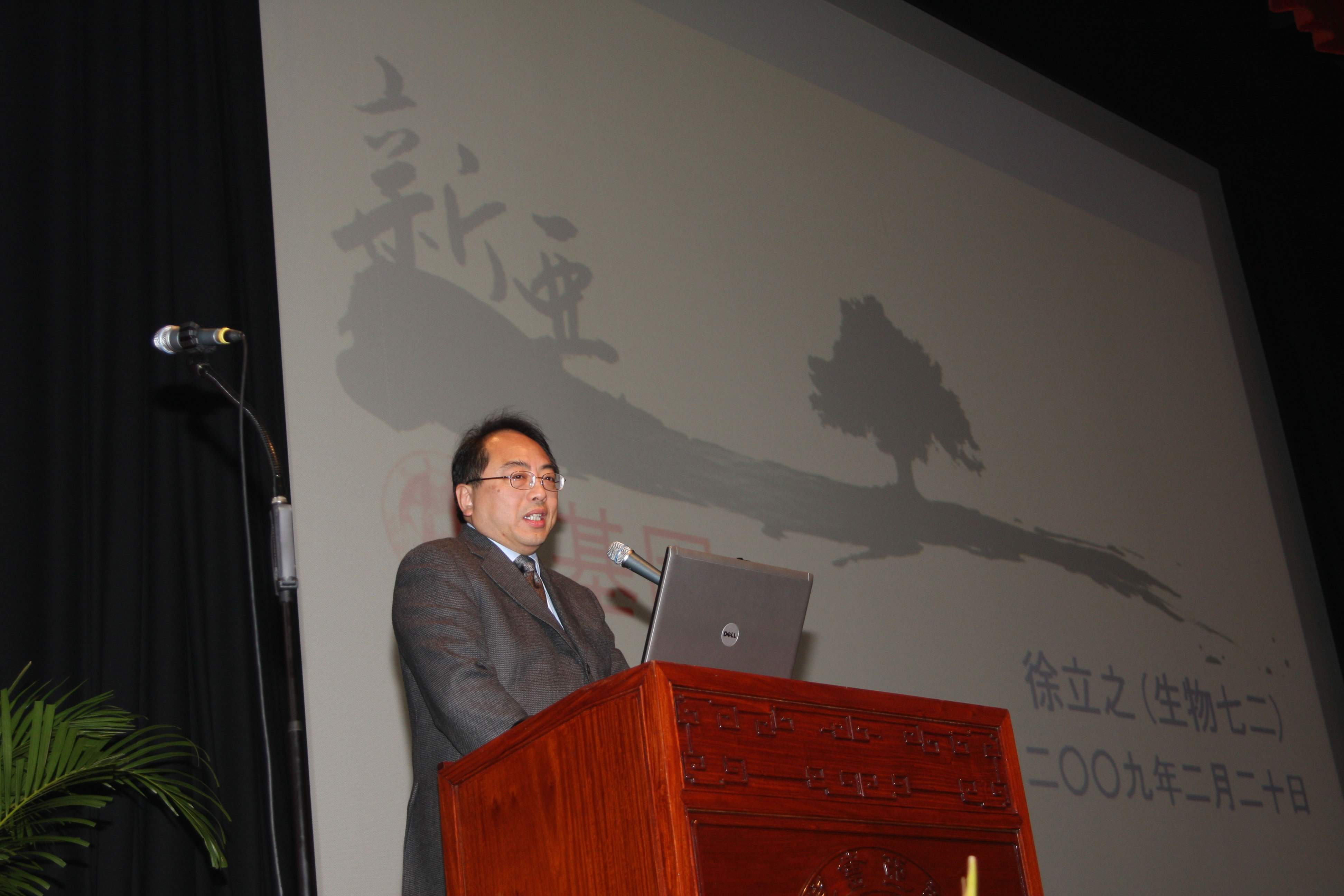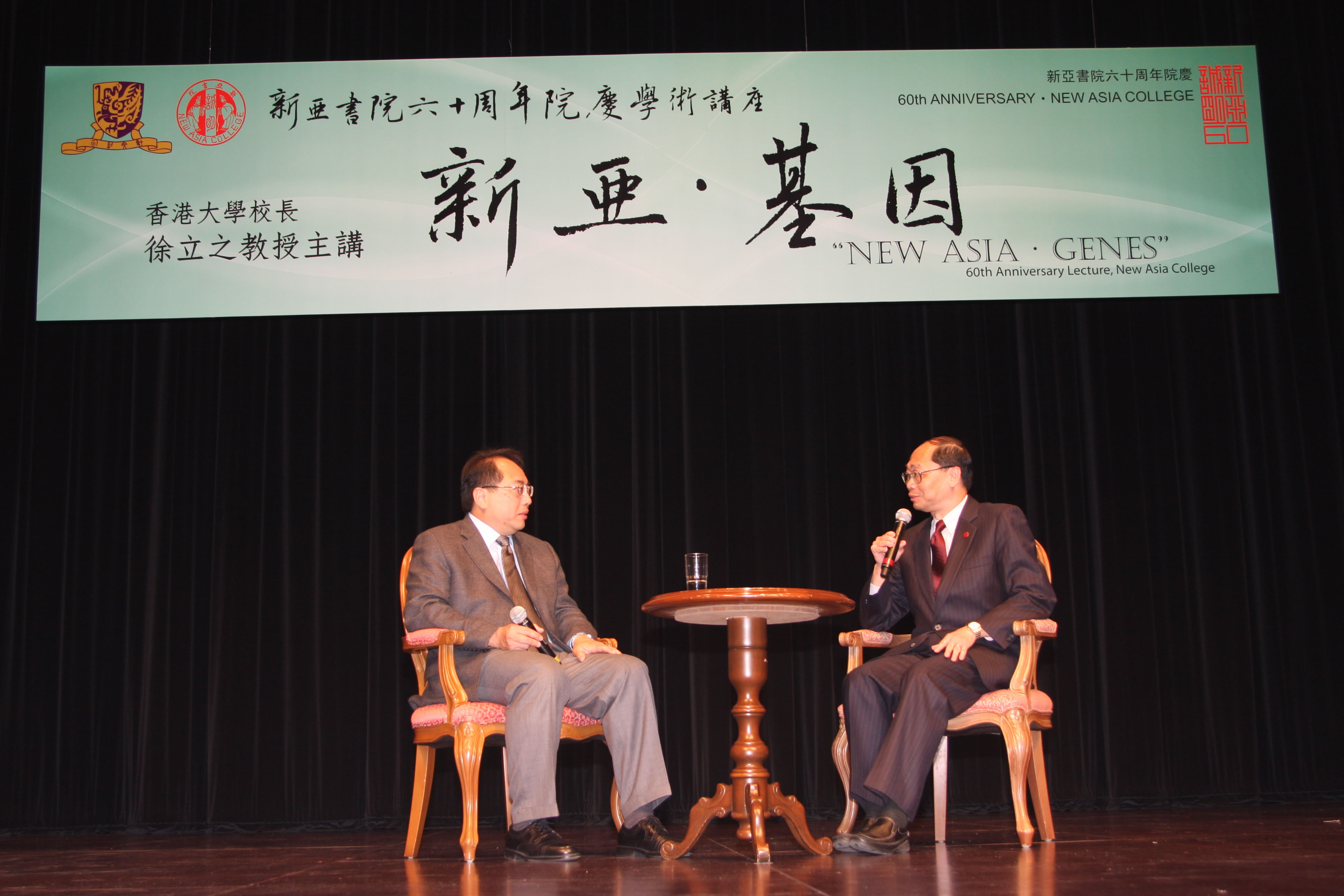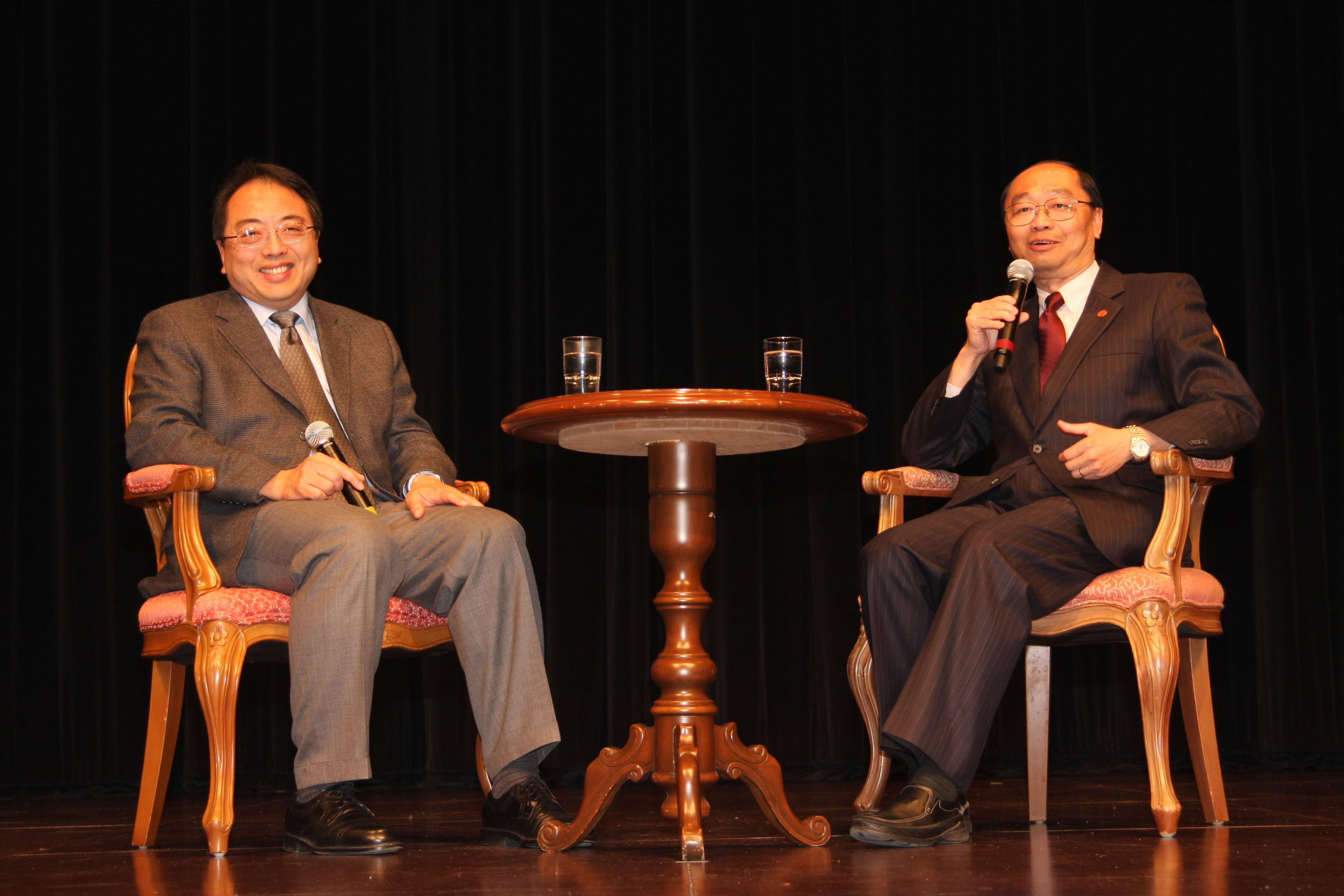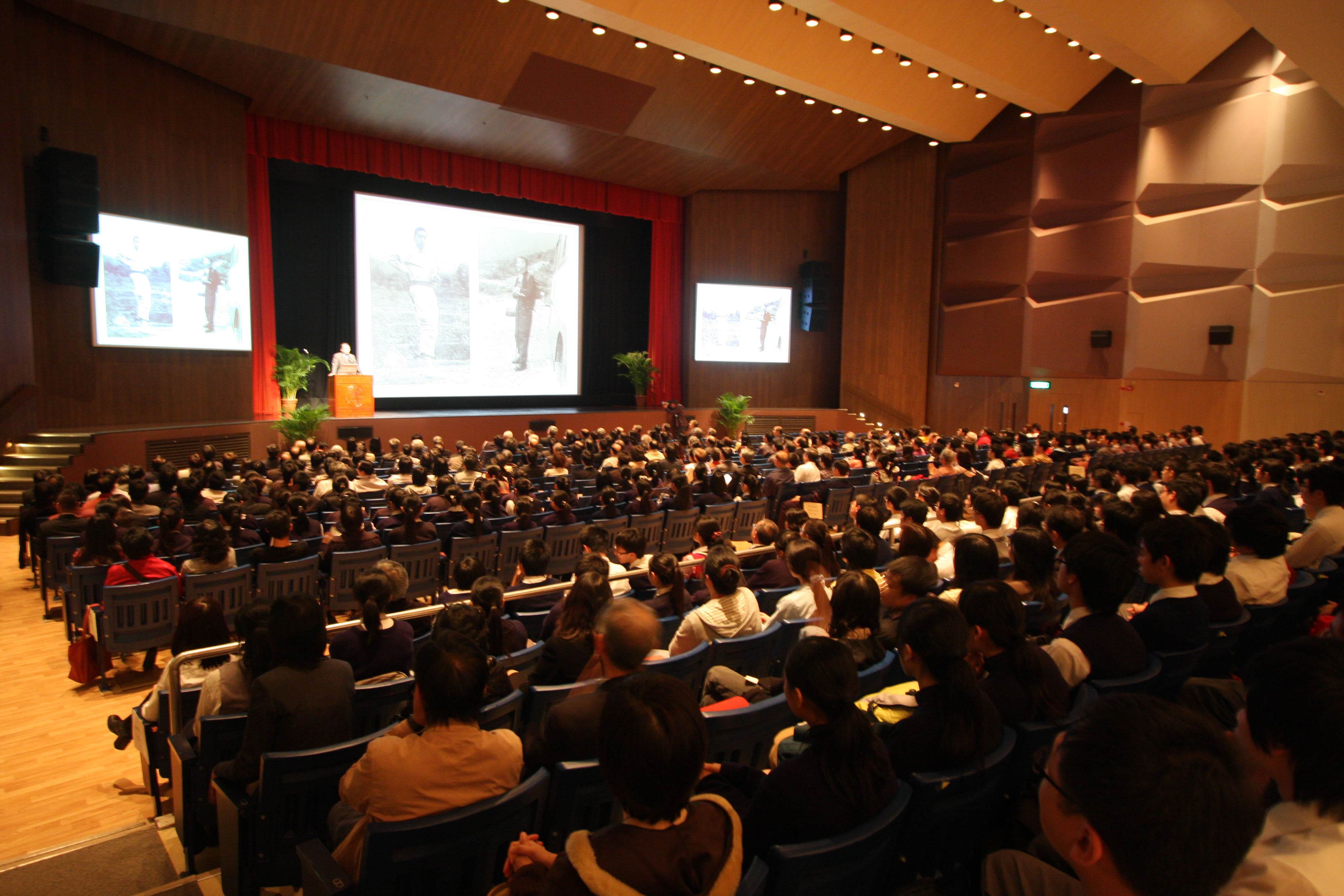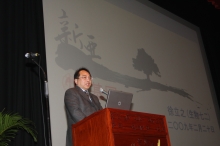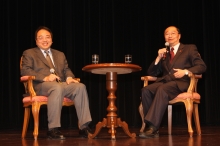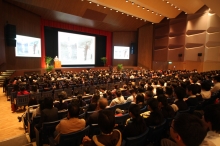CUHK
News Centre
First Academic Lecture to Celebratethe 60th Anniversary of New Asia College, CUHKProfessor Lap-chee Tsui Speaks on “New Asia.Genes”
This year marks the 60th anniversary of New Asia College. The College hosted the first anniversary lecture last Friday, 20 February at Sir Run Run Shaw Hall, The Chinese University of Hong Kong (CUHK). Professor Lap-Chee Tsui, internationally renowned geneticist, eminent researcher in human genome, and Vice-Chancellor and President of The University of Hong Kong, was invited to be the guest speaker. Professor Tsui is an alumnus of New Asia College who graduated in 1972. The lecture attracted an audience of close to 700, including members of the political, commercial and education sectors, CUHK staff, students and alumni, and secondary school students.
In his lecture entitled “New Asia.Genes”, Professor Tsui spoke on his joyful learning experience on the old Farm Road campus, and shared with the audience how “genes” and environmental factors had helped develop his interest in learning. Human genomics was not offered by the Department of Biology in those days. The discipline progressed by leaps and bounds only in the past two to three decades and has now developed into a focused area of medical and health research. Professor Tsui, who happened to have groomed and bloomed with the novice discipline, talked about the theories of genetics and the effects of environment on personal development, and explained how the interaction between innate attributes and acquired knowledge shapes one’s development. It is Professor Tsui’s hope to promote science education and enhance people’s understanding of the sophisticated relationship between nature and nurture through his lecture.
This year, New Asia College will hold a series of celebratory activities, including the Ch’ien Mu Lecture on History and Culture, the Yu Ying-shih Lecture on History, the 60th New Asia Anniversary Drama Performance, and an anniversary banquet.
New Asia College was founded in 1949 by the late Mr. Ch'ien Mu and other scholars from mainland China with an objective of establishing an educational institution which would combine the essence of the scholarship of the Song and Ming academies and the tutorial system of Western universities. With humanism as its underlying educational ideology, the College also aspires to facilitate cultural exchanges between the East and the West and to promote peace and the well-being of humankind.
Professor Lap-Chee Tsui, internationally renowned geneticist, eminent researcher in human genome, and Vice-Chancellor and President of The University of Hong Kong
Professor Henry Wong, CUHK Pro-Vice-Chancellor, Head of New Asia College presents a souvenir to Professor Lap-Chee Tsui


